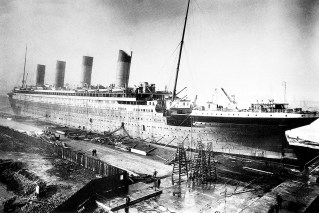King’s remains found?
Bones found in a box stored in a museum in southern England are believed to be either that of King Alfred the Great or his son, King Edward the Elder.
King Alfred, who was best known for defending his Wessex kingdom against Viking invaders and laying the foundations of a unified English state, died in 899.
His bones were buried in a cathedral in the southern city of Winchester, but were later dug up and moved several times.
In March, archaeologists excavated the last known site but were disappointed to find that the bones were not old enough to be those of Alfred.
They were then told of the existence of bones from an excavation carried out at another site, Hyde Abbey, in the 1990s and then stored at Winchester City Museum.
Tests on a pelvis bone found in one box show that it was unlikely to come from anyone other than King Alfred or his son, scientists at the University of Winchester concluded.
“Given the age at death of the individual, and the probable male identity, the plausible candidates are King Alfred, King Edward the Elder, or the brother of King Edward, Aethelweard,” Katie Tucker, a researcher in human osteology, said on Friday.
“All were buried in the abbey. However, historical evidence indicates that only the coffins of Alfred and Edward were at the site of the High Altar,” she added.
“The discovery of the bone in a pit dug into the graves in front of the High Altar makes it far more likely that it comes from either Alfred or Edward,” she said.
The announcement comes just a year after bones found under a car park in the city of Leicester were proved to be that of 15th century monarch King Richard III, the last Plantagenet king.








